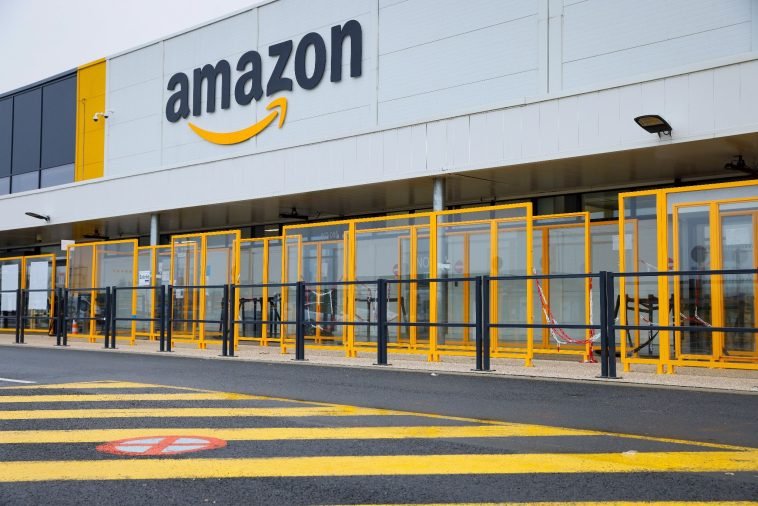Introduction.
If you’re thinking about starting an Amazon FBA business or you’re already selling on Amazon, you’re probably aware that it can be a bit tricky to navigate.
While there’s a ton of potential to make money, it’s easy to make mistakes that can cost you time, money, and even your business.
After all, Amazon is a massive marketplace with millions of products and sellers, so standing out and succeeding requires a lot of smart decisions.
In this blog post, I’m going to walk you through some of the most common mistakes that new and even experienced Amazon FBA sellers make and show you how to avoid them.
1. Not Doing Enough Product Research
One of the biggest mistakes I see is sellers jumping into a product without doing proper research. Sure, it might look like a great idea at first, but if you don’t take the time to dig deep and understand the demand, competition, and profit potential, you could end up wasting a lot of time and money.
Why is product research so important?
Imagine putting all your effort into sourcing a product, creating listings, and setting up your Amazon store only to realize there’s barely any demand or that the competition is so fierce that it’s almost impossible to get noticed. Not fun, right?
To avoid this mistake, make sure you’re using tools like Jungle Scout, Helium 10, or even the Amazon Best Sellers page to check out what’s trending and find a product with high demand but low competition. If you’re unsure, start small with a test batch before fully committing.
2. Ignoring the Importance of Your Listing Optimization
Another common mistake is not paying enough attention to your product listing. You can have the best product in the world, but if your listing doesn’t stand out or provide enough information, you might never make a sale.
What makes a great product listing?
Your product title, bullet points, images, and descriptions all play a huge role in getting potential customers to click on your product.
Your title should be clear and include the main keywords that people search for.
Bullet points should highlight the key benefits of the product, and high-quality images are a must. People want to see your product from all angles.
Don’t forget about the product description, either. A good description will go into detail about what your product does, how it benefits the customer, and why it’s the right choice for them. It should sound natural and convincing.
3. Underestimating Amazon Fees
A lot of new sellers get caught off guard by the fees Amazon charges for FBA (Fulfilled by Amazon) services.
These fees can include storage, shipping, and other service-related costs. If you’re not calculating these into your pricing, you could end up eating into your profits more than you expected.
What should you do?
Before deciding on your pricing, always factor in Amazon’s fees. You can use the FBA calculator on Amazon’s website to get a better idea of how much you’ll be paying in fees for each sale.
Once you know that, make sure your pricing leaves room for a healthy profit margin. Don’t just focus on selling cheap products to make quick sales. Pricing too low can hurt your profit and make it harder to grow your business in the long run.
4. Choosing the Wrong Shipping Strategy
When you’re sending products to Amazon, you’ll need to figure out the best way to ship them. Some sellers make the mistake of either overpaying for shipping or miscalculating the amount of inventory they need to send.
This can lead to products running out of stock too quickly or paying too much for shipping when you could be using a more cost-effective method.
What’s the fix?
Take the time to find the most cost-effective shipping method for your products. Don’t assume the first option is the best.
Sometimes it makes sense to use sea freight instead of air freight to save on costs if you’re ordering large quantities.
And don’t forget about Amazon’s “inventory performance index” (IPI). If you store too much inventory and it’s not selling, Amazon will start charging you more in storage fees. It’s important to balance your shipments with demand.
5. Failing to Monitor Your Inventory and Sales
Inventory management is key to keeping your business running smoothly. Not keeping track of your stock levels and sales can lead to running out of stock or having too much inventory sitting around. Both of these scenarios can hurt your Amazon business.
Why is inventory management so important?
Running out of stock can hurt your rankings on Amazon, and having excess inventory can lead to storage fees.
Both of these are avoidable with regular monitoring. It’s also essential to keep an eye on your sales velocity to ensure you’re ordering the right amount of stock at the right time.
Use Amazon’s inventory management tools, or third-party software, to track your inventory and make sure you’re always prepared. This will also help you avoid last-minute shipping delays, which can affect your seller performance.
6. Ignoring Customer Reviews and Feedback
Customer reviews are one of the most powerful tools you have on Amazon. Yet, some sellers ignore or neglect them. Customer feedback can help you improve your products, identify issues early, and build trust with potential buyers.
How can you use reviews to your advantage?
First, make sure you’re reading every review. If customers leave feedback about problems with the product or shipping, address them as quickly as possible. If the issue is with your product quality, look into improving it. Responding to positive reviews can also help you build relationships with your customers.
Also, don’t be afraid to ask your satisfied customers for reviews. Just be careful to follow Amazon’s guidelines and avoid any manipulative tactics, like offering discounts in exchange for reviews.
7. Overlooking Amazon’s Policies and Guidelines
Amazon is very strict when it comes to its policies and guidelines. A lot of new sellers overlook these rules, thinking they won’t be caught, but Amazon is quick to suspend or ban accounts that don’t follow the rules. It’s essential to stay updated on Amazon’s policies to keep your account safe.
What should you do?
Make sure you’re familiar with Amazon’s guidelines for FBA sellers, including rules around product listings, shipping, customer service, and more. Violating any of these rules could lead to suspension, which can seriously affect your business. Always take time to read through updates and make sure your business stays compliant.
Conclusion.
Building a successful Amazon FBA business isn’t easy, but avoiding these common mistakes can give you a much better chance at success. From researching the right products to staying on top of your inventory, every step counts.
If you can learn from others’ mistakes and avoid making these errors yourself, you’ll be in a much stronger position to grow your business and make profits.
So, now that you know what to watch out for, what’s the one mistake you’re going to avoid the most when growing your Amazon FBA business?





GIPHY App Key not set. Please check settings